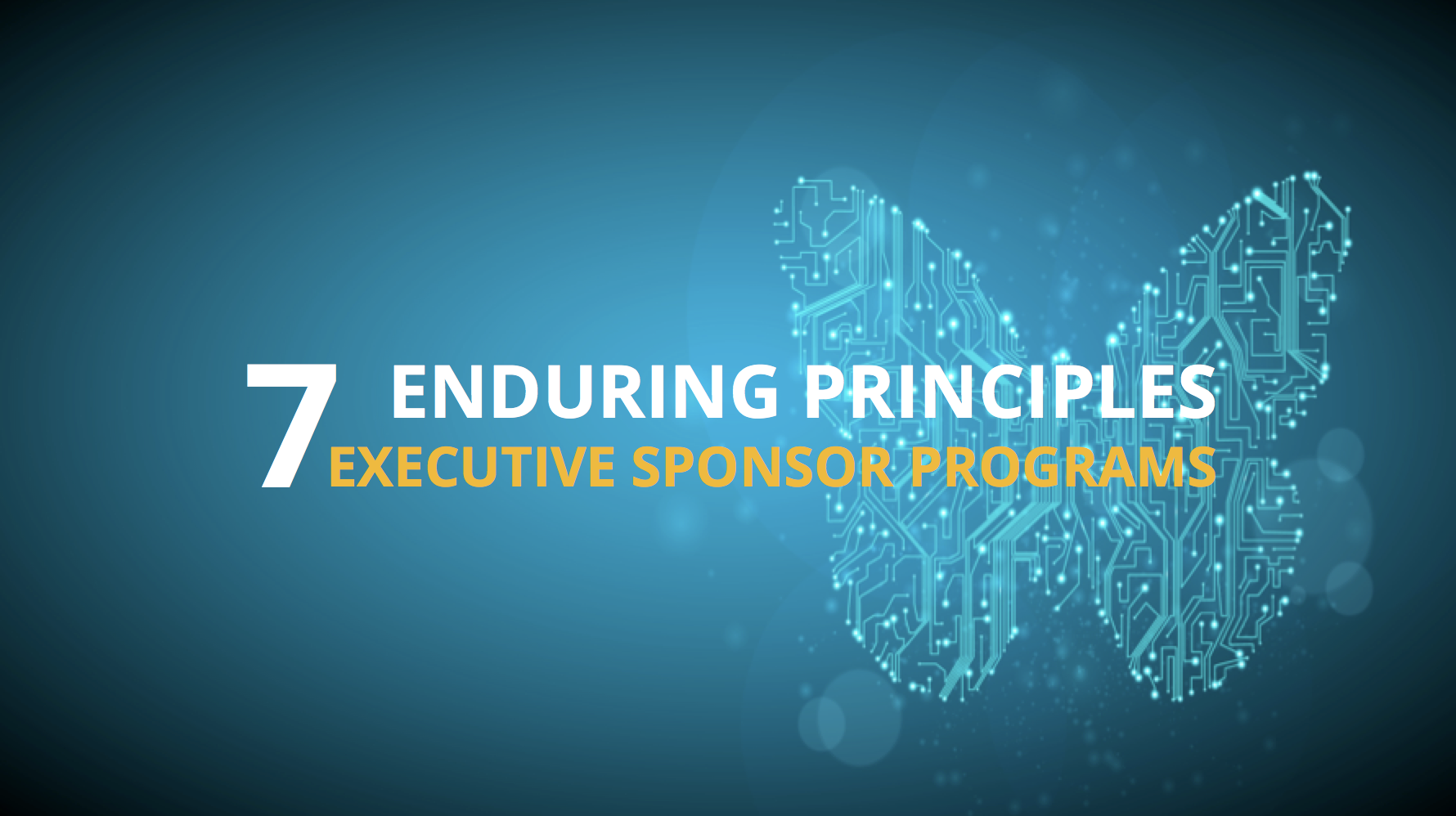Those that occupy that rarified space of ‘best-in-class’ sales transformation programs deliver exceptional value to their companies. Without exception, the leader driving the change is passionate, charismatic, dedicated to the cause, and the guiding light for the rest of the participants in the program. One such leader is Glenn Davis, a senior executive in the healthcare industry. Glenn cares deeply about improving healthcare. He has his own personal reasons that underpin his passion to improve quality for all stakeholders: those who need healthcare, those who provide the service and those who support the healthcare system. That’s the perspective that Glenn brought to his global sales transformation program.
Glenn understands better than most how Executive Sponsor Programs work, and how by looking ahead you can plan a program that makes a difference to your company’s revenue, your clients’ revenue and the success of your client’s clients. As I was writing this chapter on the role of the executive sponsor, I asked Glenn to share his wisdom on the key principles that he followed to deliver a successful program.
I have packaged Glenn’s insight into what I call ‘Glenn Davis’ 7 Key Principles of Enduring Executive Sponsor Programs.’ In his words these principles are:
A Practitioner’s Perspective
Glenn Davis’ 7 Key Principles of Enduring Executive Sponsor Programs
- Understand the why and the what of the program: Why do you need an Executive Sponsor Program in the first place? Save clients? Help clients? Grow clients? Then what are the metrics of success for the program? Revenue gained? LCV? NPS? Write a Program Charter to serve as the true north of the program and include the why and the what of the program.
- Identify targeted clients for the program using data: Use data with your Charter to guide your senior executives to identify the right clients to engage in the program. A deep understanding of the goal of the program and the data elements required to find clients who can help achieve the goal are critical to the success of the program.
- Clearly define the roles and responsibilities of the executive sponsor and the client executive who owns the relationship: The executive sponsor must not be viewed by the client as a substitute for the client executive who owns the relationship, but should be seen by the client as also reliant on the client executive for the day-to-day functioning of the relationship. The executive sponsor functions to align the firm’s strategic direction to aid the client’s best interest.
- Develop a training, development and onboarding program for executive sponsors: “We are always calling on the same people.” “We don’t gain consistent results.” These are two of the biggest complaints I have heard. The myth exists that executives know how to be executive sponsors. That’s simply untrue. They may not know the specific program metrics, may not know much about a given client, or may not know the client team. Closing these knowledge gaps is a key step in any successful program.
- Executive Sponsor Programs must exist in a larger context of a client engagement program: Other programs associated with the engagement model might include: a client planning process; quarterly executive reviews of client progress to plan; a Net Promoter Score focused on not only NPS but driving activities to improve NPS. This approach to executive sponsorship and client engagement more broadly drives deeper, more lasting, more prosperous client relationships.
- Executive sponsors should be incentivized to create stated metrics for clients assigned to them: These roles can be the proverbial ‘off the side of the desk assignment.’ This may indicate that complete organizational alignment has not been achieved for the Executive Sponsor Program. Executives are extremely busy; if their compensation is not at stake it may be hard for them to dedicate their time and efforts to a single or a few client relationships.
- The CEO must be briefed at least quarterly on the success of the overall program: There is an underlying assumption that the Executive Sponsor Program is extremely important – after all we are investing the precious time of executives in the engagement. Thus a routine, metrics based review of the program with the CEO is a critical lever in ensuring the success of the program.
This first appeared in my latest book: Digital Sales Transformation in a Customer First World.
If you want to read more of my blogs please subscribe to Think for a Living blog. Follow me on Twitter or connect on LinkedIn. I want you to agree or disagree with me, but most of all: I want you to bring passion to the conversation.
Donal Daly is Executive Chairman of Altify having founded the company in 2005. He is author of numerous books and ebooks including the latest Amazon #1 Bestseller Digital Sales Transformation in a Customer First World (Nov 3, 2017) and his previous Amazon #1 Best-sellers Account Planning in Salesforce and Tomorrow | Today: How AI Impacts How We Work, Live, and Think. Altify is Donal’s fifth global business enterprise.

